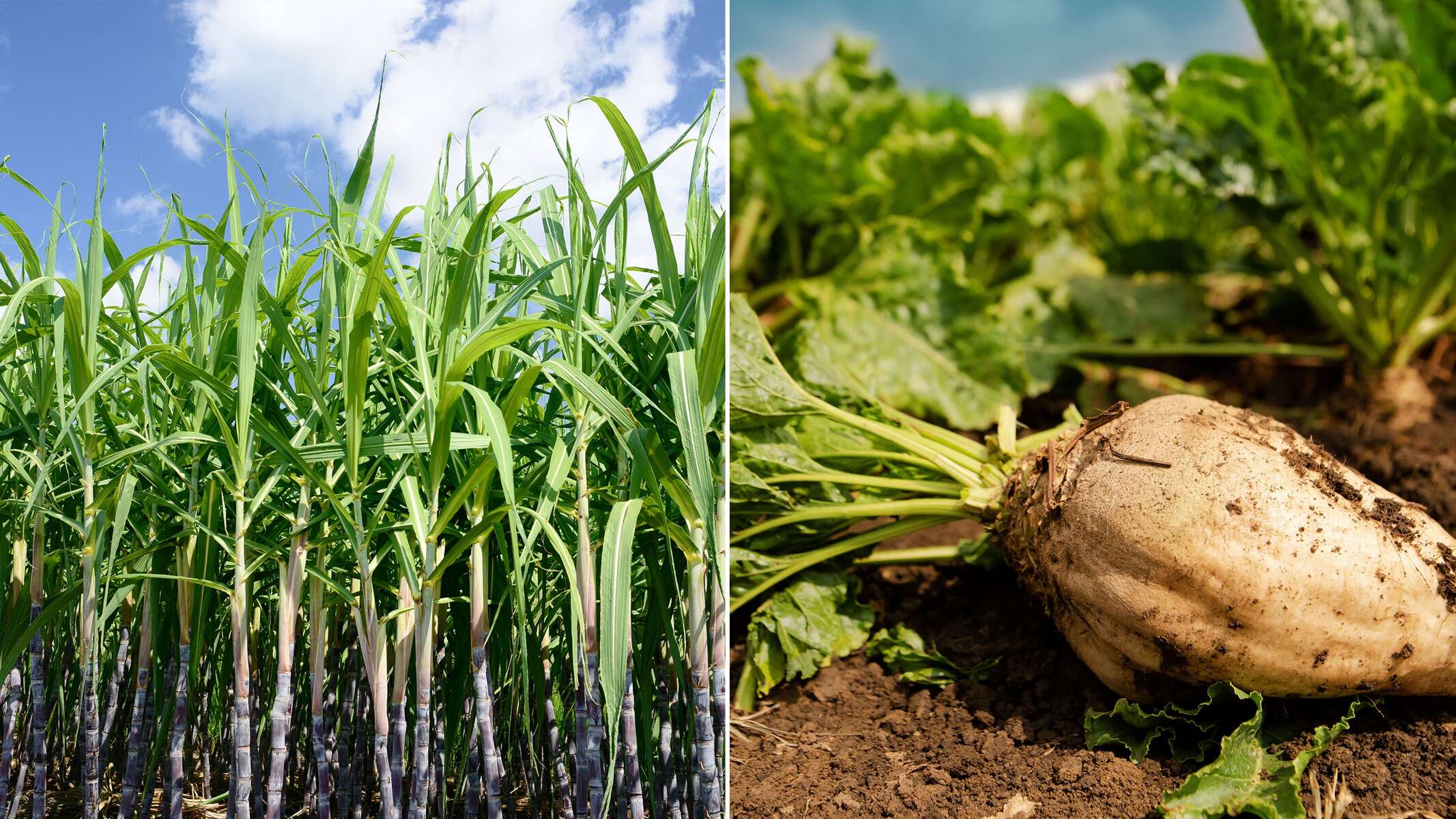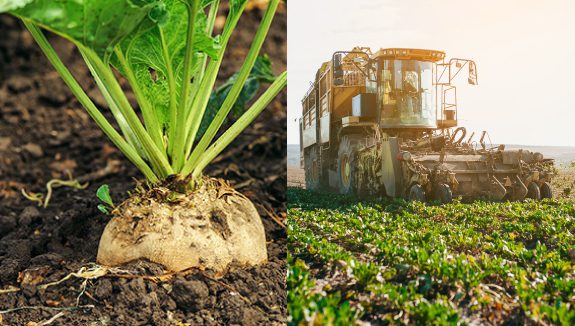The Great Argument: Sugar Beet Vs Sugar Cane - Which Is the Superior Selection for Sweeteners?
The discussion over sugar beet versus sugar cane as the favored sugar includes several critical aspects. Each offers distinctive benefits and difficulties concerning manufacturing, flavor, and wellness effects. While sugar beet may interest those prioritizing sustainability, sugar cane has its own social and cooking relevance. As consumers end up being extra mindful of their selections, the question stays: which sugar truly attracts attention in today's market?
The Origins of Sugar Beet and Sugar Cane
Although sugar cane has been cultivated for hundreds of years, mainly in exotic areas, sugar beet became a substantial choice in cooler climates during the 18th century. Sugar cane, indigenous to Southeast Asia, was very first tamed around 8000 BCE and spread worldwide through profession and exploration. Its high sucrose web content made it a beneficial plant, resulting in extensive vineyards in areas like the Caribbean and Brazil.
On the other hand, sugar beet was initial cultivated in the Mediterranean around the 18th century, particularly gaining traction in Europe as a feedback to sugar cane shortages. The plant prospers in temperate environments, making it suitable for regions with cooler weather. The exploration that sugar could be drawn out from beet roots reinvented sugar production, especially during the Napoleonic Battles when trade limitations limited cane sugar access. The rise of sugar beet cultivation noted a turning point in the history of sweeteners, giving a regional source for numerous countries.
Manufacturing Processes: From Field to Sweetener
The manufacturing procedures of sugar beet and sugar cane expose significant distinctions in farming methods, gathering methods, and improvement phases. Recognizing these subtleties is essential for appreciating just how each crop adds to the overall sugar market. This comparison highlights the special qualities and difficulties connected with both resources of sweet taste.

Farming Techniques Contrast
Farming methods for sugar beet and sugar cane disclose unique approaches that affect their production processes, from field preparation to last sweetener extraction. Sugar beet growing typically entails raking and painful to create a fine seedbed, followed by seeding in rows to promote development. This plant advantages from cooler environments and is usually planted in spring. On the other hand, sugar cane is usually grown in furrows with pre-sprouted cane items, requiring a cozy, tropical environment for perfect growth. Cane fields are commonly set out to manage water effectively, offered its need for considerable irrigation. Both plants are managed with certain fertilizing and insect control methods tailored to their growth environments, impacting return quality and effectiveness in sugar removal.

Collecting Techniques Described
Reliable gathering methods for sugar beet and sugar cane play a necessary duty in guaranteeing maximum return and top quality of the end product. Sugar beet harvesting normally uses mechanized root farmers, which effectively root out the beetroots from the dirt and different them from the vegetation. This method decreases damages to the beetroots and minimizes labor prices. On the other hand, sugar cane harvesting may use either hand-operated labor or machinery, depending on the region and scale of production. Mechanical harvesters reduced the cane at the base and commonly strip away the leaves, optimizing the process for larger fields. Both methods need cautious timing to ensure the plants are gathered at peak sweet taste, influencing the quality of the final sugar item.
Refinement Process Differences
While both sugar beet and sugar cane go through strenuous refinement procedures to transform their raw kinds right into functional sweeteners, the approaches utilized vary significantly. Sugar beet improvement begins with washing and cutting the beetroots into slim cossettes, complied with by diffusion, where warm water essences sucrose. The resulting juice is after that cleansed, concentrated, and crystallized. On the other hand, sugar cane handling includes crushing the stalks to remove juice, which is after that clarified making use of lime and warm to remove impurities. The cane juice is evaporated to create syrup prior to condensation. Ultimately, while both procedures aim to create white sugar, the distinct strategies highlight the one-of-a-kind features of each resource and their implications for taste and pureness in the end product.
Nutritional Profiles: What remains in Your Sweetener?
The nutritional accounts of sugar beet and sugar cane present distinct distinctions worth checking out. This contrast includes facets such as caloric web content, mineral and vitamin presence, and variations in glycemic index. Comprehending these elements can offer understandings right into exactly how each sugar might affect overall health.
Caloric Material Contrast
Understanding the caloric content of sugar beet and sugar cane is essential for those mindful of their dietary options. Both sugar mostly include sucrose, contributing a comparable calorie worth. Generally, sugar beet has roughly 387 calories per 100 grams, while sugar cane has concerning 390 calories per the same amount. The mild distinction in calorie web content might not significantly influence most diet regimens; nevertheless, it is exceptional for those carefully monitoring their caloric intake. Furthermore, both sugar sources offer energy yet do not have necessary nutrients, making them primarily resources of vacant calories. Individuals seeking much healthier choices might desire to take into account these elements when selecting between sugar beet and sugar cane as their chosen sweetener.
Mineral and Vitamin Material
Calorie material gives only a component of the photo when examining sugar beet and sugar cane. Both sources of sugar vary noticeably in their mineral and vitamin accounts. Sugar beets are remarkably rich in essential nutrients, consisting of potassium, magnesium, and iron. They likewise contain percentages of vitamins such as B6 and folate, contributing to their nutritional worth. In comparison, sugar cane offers a different collection of benefits, including calcium, phosphorus, and traces of B vitamins. While neither alternative is a substantial resource of minerals and vitamins contrasted to entire foods, sugar beets might have a small edge due to their greater mineral content. Eventually, consumers seeking dietary gain from sugar must consider these distinctions in accounts.
Glycemic Index Distinctions
Glycemic index plays a crucial function in evaluating how various sugar impact blood sugar degrees. Sugar beet and sugar cane display notable distinctions in their glycemic reactions. Usually, sugar beet has a lower glycemic index contrasted to sugar cane, causing a slower and steadier rise in blood sugar levels after intake. This characteristic may make sugar beet a preferable choice for individuals taking care of diabetic issues or those looking for to maintain stable energy degrees. In contrast, sugar cane has a tendency to create a more rapid spike in blood glucose, which can lead to quicker energy collisions. Understanding these distinctions is significant for consumers aiming to make educated nutritional choices pertaining to sugar and their effect on general wellness.
Environmental Influence: Sustainability Factors To Consider
While both sugar beet and sugar cane are vital sources of sugar, their ecological influences and sustainability considerations vary considerably. Sugar beets, primarily expanded in pleasant areas, typically require much less water and can be grown in diverse climates. They likewise gain from crop turning practices, which improve soil wellness and decrease the need for artificial fertilizers. However, extensive farming of sugar beets can lead to dirt depletion and chemical use.
On the other hand, sugar cane prospers in exotic climates and often requires substantial water sources for watering (Sugar beet vs sugar cane). The monoculture nature of sugar cane farming can aggravate dirt disintegration and biodiversity loss. Furthermore, the burning of cane fields prior to harvest launches carbon emissions and adds to air pollution. Both crops encounter obstacles related to environment modification, but their varying growing methods exceptionally influence their total sustainability accounts. The option in between sugar beet and sugar cane includes weighing these ecological influences very carefully.
Taste and Culinary Makes Use Of: Which Sweetener Reigns Supreme?
The his explanation selection between sugar beet and sugar cane expands past environmental factors to consider to include preference and culinary applications. Sugar beet, typically perceived as having a somewhat different flavor profile, often tends to be much less sweet than sugar cane. This refined distinction can affect its usage in recipes, specifically in baked products where a neutral sweet taste is preferred.
Conversely, sugar cane is celebrated for its unique, abundant, and extra intricate taste, making it a recommended choice for beverages and desserts - Sugar beet vs sugar cane. Its natural molasses material can improve the depth of flavors in different meals
In food preparation, sugar cane's versatility radiates via in marinades, glazes, and confections, while sugar beet is generally found in processed foods and sweeteners like granulated sugar. Ultimately, the choice in between the 2 sweeteners commonly hinges on private taste preferences and specific cooking applications, with each offering special benefits in the cooking area.
Health Ramifications: Sugar Beet Vs Sugar Cane
Both sugar beet and sugar cane have unique wellness effects that can influence customer selections. Sugar beet vs sugar cane. Sugar beet is frequently regarded for its higher fiber content, which can aid digestive wellness. In addition, it includes specific anti-oxidants that might add to overall wellness. On the other hand, sugar cane is abundant in nutrients such as calcium, potassium, and magnesium, supplying some mineral advantages
Both resources mostly consist of sucrose, which can lead to similar health concerns when consumed excessively, such as weight problems, diabetic issues, and heart condition. The handling techniques additionally differ; sugar beet is usually fine-tuned a lot more intensively, possibly leading to a loss of certain nutrients. Customers worried about ingredients might favor sugar cane, as it commonly undertakes much less processing. Inevitably, comprehending these wellness ramifications can direct individuals towards making informed choices concerning their sweetener selections.
Consumer Preferences: Fads and Insights
Customer preferences for sweeteners have actually progressed considerably in recent times, influenced by health patterns, environmental problems, and dietary options. Boosted recognition of the negative health and wellness impacts linked with extreme sugar usage has actually led numerous consumers to seek options. This change has triggered an expanding rate of interest in natural sugar, with sugar beet and sugar cane being at the leading edge go to this web-site of discussions.
Study indicates that customers are increasingly preferring other sugar beet due to its viewed ecological benefits, as it is often grown closer to refining plants, reducing transportation discharges. Alternatively, sugar cane is typically associated with exotic regions and might lug understandings of sustainability obstacles.

Regularly Asked Inquiries
Just How Do Sugar Beet and Sugar Cane Affect Blood Sugar Degrees?
Sugar beet and sugar cane both have sucrose, which can boost blood glucose levels. The impact largely depends on specific metabolic process and consumption amounts, but both resources add similarly to blood sugar actions in the majority of instances.
Which Sugar Is Much Better for Baking and Cooking?
When assessing sugar for cooking and cooking, one should think about structure, flavor, and moisture retention. Sugar beet and sugar cane both offer special high qualities, with sugar cane often favored for its richer flavor account in cooking applications.
Can Sugar Beet or Cane Be Made Use Of in Vegan Diets?
Both sugar beet and sugar cane can be utilized in vegan diets. They are plant-derived sweeteners, making them ideal for people seeking vegan-friendly alternatives without pet items, making certain moral options in their culinary techniques.
What Are the Historic Uses Sugar Beet and Cane?
Historically, sugar beet and cane worked as vital sources of sweet taste, with cane cultivated in tropical areas and beet in temperate zones. Both have actually been integral to various societies, economic climates, and culinary customs throughout history.
Exist Any Kind Of Alternatives to Sugar Beet and Cane?
Alternatives to sugar beet and cane consist of agave nectar, honey, syrup, and sweetening agents like aspartame and sucralose. These alternatives supply varying tastes and health benefits, appealing to varied dietary preferences and constraints.